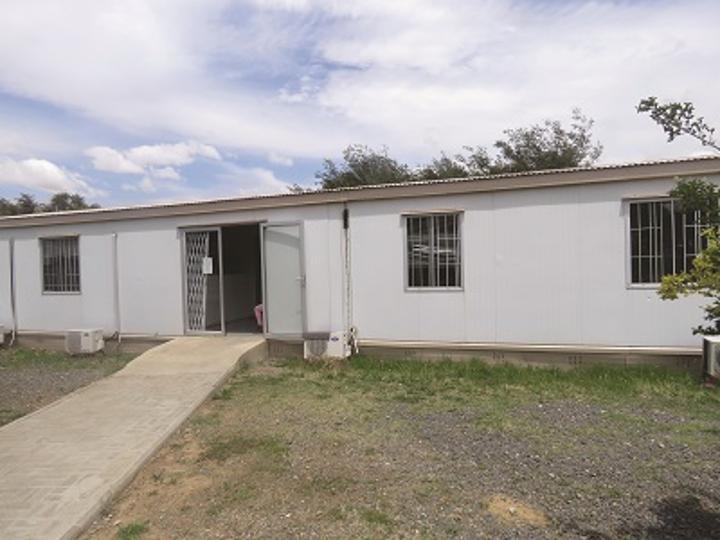Africa-Press – Lesotho. The United Nations Convention on the Rights of the Child (CRC) defines children as persons below the age of 18. The CRC underpins the following four aspects
as regards to children’s rights, “participation by children in decisions affecting them, protection of children against discrimination, neglect and exploitation, prevention of harm to children and provisions for children’s
basic needs”. Despite signing this convention in 1990, Lesotho ratified it in 1992. The year 2011 saw the enactment of Children’s Protection Welfare Act which
repealed the Children’s Protection Act of 1980 which was believed to be incapacitated to adequately address the children’s welfare. Our reporter, Thoboloko Ntšonyane had zoomed in on the role played by the
Children’s Court in ensuring the children’s welfare maintenance. Below is the excerpt of the interview with Children’s Court Magistrate ‘Mathabo Kopung.
What is the role of the Children’s Court? The role of the children’s Court is to protect children’s rights as well as ensuring that all actions concerning a child take full account of his
interests. It was established by the Children’s protection and welfare Act, 2011. What is the jurisdiction of this court? It is to hear and determine cases of children in need of care, protection and
rehabilitation. What are the types of cases that are heard in this court? We hear all cases where a child is in conflict with the law, where an offence
has been committed against a child, maintenance cases, custody and or access, as well as any other application where a child is involved. The principle we
use being “The Best Interests of the Child”. Is this court only in Maseru? No, we are just privileged to have had a park home donated to us and so we are
situated outside of the main Court, the Maseru Magistrate Court. The law, Children’s Protection and Welfare Act (CPWA) Section 133(1), provides that every subordinate Court shall be a
children’s Court within its area of jurisdiction. This means that in all other nine districts of Lesotho, every subordinate Court is a children’s Court, they
just operate within the premises of the Court where all other cases are heard, unlike the children’s Court in Maseru. Roughly, how many child maintenance
cases do you dispose of in a month? In a year we have around 600 maintenance cases registered, and in a month around 50 cases are disposed of. A case can be disposed of in a day if there
are no issues that warrant a postponement to another date. What are the possible sentences to parents who abdicate their children’s welfare? Parents who fail to fulfil or undertake responsibility or duty to their
children’s welfare are likely to face sentences and the law provides for possible sentences of a fine of M2000.00 or imprisonment for a period not exceeding two months or both.
This is mostly for offences provided for in the CPWA. However, sentences can be very heavy in sexual offence cases which can attract a sentence of 15 years imprisonment without an option of a fine, and
yes parents do commit such offences against their own children. What is a family based arrangement, does the court uphold such? Maintenance can be claimed against a parent while still living in the same
house as their spouse and children, living together as a family. Some families do approach our Court with an agreement as to how they each will contribute
towards raising their children and the Court does uphold such. These are families where the other parent seem not to be doing enough or even nothing at
all and so wish to have an order of Court so they are forced to carry out that obligation. How is child support calculated, is there a formula or the Court Order is informed by the court’s discretion on how
much should be paid? There are considerations made by the Court in calculating child support. These include the source of income of the parent against whom maintenance is claimed,
their financial responsibility, the cost of living within the area where the children live and any other relevant matter. That is why the parent may be requested to
bring their pay slip as a proof of their income, so that the Court is informed of such. We consider also their financial obligations for example loans they
are paying, their rent, food, clothing and transport to and from work, whether they have other children for whom they are responsible. However, we consider their most basic needs
not luxuries. We go to the extent of engaging in a mathematical exercise of adding all these needs and then deducting the total from their net income and
then agree or decide how much they will contribute as child support. We do all that also considering the child’s needs of course. What is entailed in a child’s
maintenance? The child’s needs considered by the Court for maintenance purposes are those most basic needs which include food, clothes, seasonally, winter and summer,
fees, transport because children do need transport to school although this may not apply to all, a nanny where there is need for one and medical expenses.
These we can say are the most basic needs of a child. What age is child maintenance paid until? Child maintenance is paid until the child attains the age of eighteen years or
dies before that age. However, a maintenance order may continue after a child is eighteen years if such child is still at school, secondary education or
training, training could be tertiary education that is not sponsored either by National Manpower Development Secretariat (NMDS) or any other sponsorship.
What happens if the child maintenance payer defaults? What about if he or she files for bankruptcy? The law allows us to attach the earnings, salary or property of such a person.
This order is directed to the employer to deduct the maintenance money from the maintenance payer’s salary or other earnings and to deposit the same into an
account stated on the order. Arrears may also be included because every time the payer defaults he is in arrears for the amount. May I say on this issue, we have encountered
situations where employers refuse to deduct the money and some have found themselves before our Court having to answer for such failure to deduct as directed by the Court.
Our plea is that when a notice of such garnishee application is served upon an employer and they might be unable to carry that out for valid reasons, they should approach the court on or before
the date stated in the application to state such reasons, before the order is made. Where the payer files for bankruptcy obviously they have no means of income and so are unable to continue payments.
These are rare cases. However, such payers should approach the Court with proof to that effect, same goes for when they lose their job which is their main and only
source of income. In a situation where the parent settling child maintenance has new children, is there a new arrangement that is made as such parent now has other obligations to fulfill?
Yes a new arrangement is made. Maintenance is subject to variation. Either party, the recipient of the money or the payer can approach the court for an
increase or a decrease and they have to state valid reasons for that application. A payer approaching the Court for a decrease of the money because he has new children for whom he is responsible or has an
obligation to maintain is reason enough, or of course a parent securing a new job with better pay and applying for an increase is also reason enough for
variation. Should a parent who is supposed to pay the child maintenance disputes the ownership of their child, how is this settled? The Court orders that DNA tests be carried out, such party normally applies for
that. If the result proves paternity then we go on to determine maintenance to be contributed by such party, however if they prove the party who disputes
right, then it means they are not liable to maintain the child. What legal action would be taken against the custodial parent who does not maintain the child’s needs despite receiving
maintenance from another parent? Where the custodial parent receiving the maintenance money misappropriated, misapplies or mismanages it, the court may appoint another person to receive
such money or order the payer to carry out the duties themselves, for example buy the clothes, the food or even to pay the fees instead of contributing
money. What is the legal position of unmarried persons as far as the child maintenance is concerned? They have a joint responsibility, mother and father, to maintain their child.
May I just also include that a non-custodial parent against whom maintenance has been claimed and or ordered, the law provides that they shall have access to the child who is the subject of the order. Mothers have a tendency of denying fathers access and yet they expect them to pay maintenance money.
What
are the challenges facing the Children’s Court? We have quite a number of challenges. In maintenance cases where the party against whom maintenance is claimed is not
employed, either they run a business or whatever hussle, it is challenging to determine maintenance because their income is not clear and we do not have
investigators who can help look into the party’s finances. The best we do is rely on their word and most of the time they are not honest about their income.
Employers are reluctant to execute our garnishee orders, those are orders made by the Court directing employers to deduct the maintenance money from the maintenance payer’s salary.
Resources are limited, for example we have to type and print our orders and we have a lot of those, but we do not have the tools. We therefore draft them by pen and let the parties’ type and print them for themselves and ours is just to sign after checking that they typed the correct thing.
Some go to public places and this has an effect of exposing information which is otherwise confidential. These are just some of the challenges we face.
If you would like to subscribe for informative newspaper FREE WhatsApp Edition, please follow this link to join. The admin will then remove you from the welcome group so you start receiving the full version (all pages) of the newspaper weekly: https://chat. whatsapp. com/loL8tStNSB186kQeMrb3Cg
For More News And Analysis About Lesotho Follow Africa-Press






